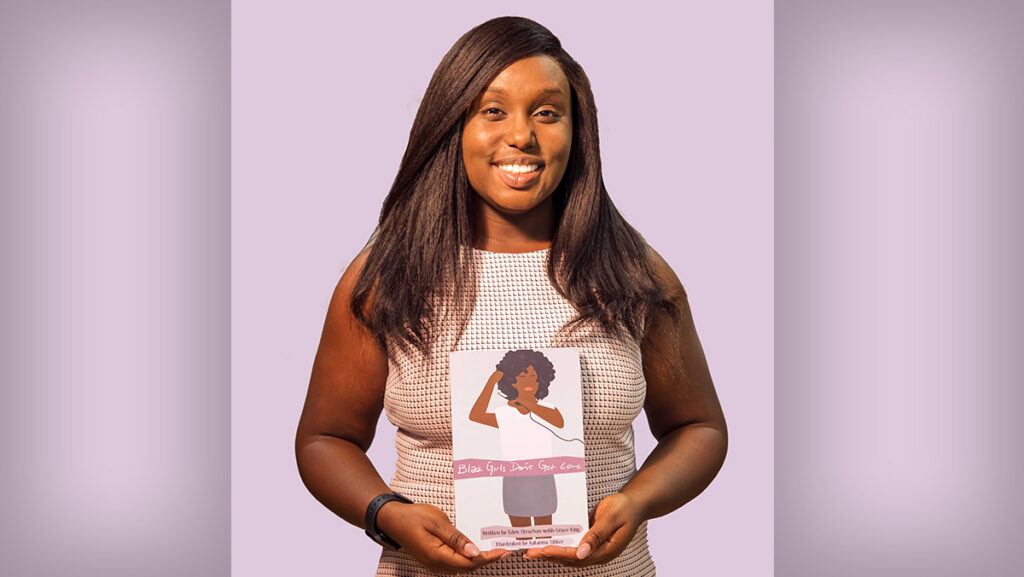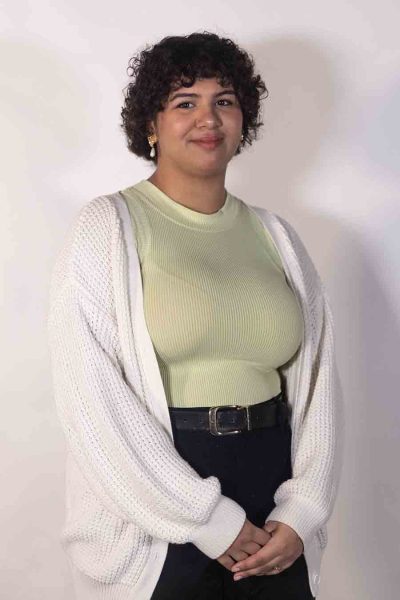Slumber parties, roses, tiaras, sugar, spice and everything nice. What started from a class at Ithaca College has evolved into a multimedia organization with a central message: Black girls deserve love.
Black Girls Don’t Get Love was founded by Eden Strachan ’21 in February 2022 after Strachan became inspired by the work of Audre Lorde, an American writer and feminist, during a Black feminist theory class she took during her time at the college. The ideas she learned in that class, Strachan said, inspired a short film while she was a student — which itself served as the inspiration for Black Girls Don’t Get Love. The organization is a non-profit, multimedia coming-of-age brand dedicated to supporting girls of color by using media to influence the way Black women and girls are perceived in society.
In February 2022, Strachan released “Black Girls Don’t Get Love” as a children’s book. A book launch party was hosted by the Ujima Black Student Union to celebrate the book’s release. About 70 people, including girls from the Southside Community Center Black Alchemist group, attended a live reading of the book.
Part of the experience, Strachan said, is hosting events for Black girls to participate in. In July 2022, the organization hosted the Black Girls Don’t Get Love Prom where young girls from across Central New York gathered in Syracuse for an evening of tiaras, gowns, live music and dancing. With over $8,000 in sponsorships from organizations like The Gifford Foundation, Ninety-Two and Becca’s Closet, the Black Girls Don’t Get Love team was able to provide free dresses to girls to ensure that cost would not be a barrier to attending.
“Just allowing the everyday Black girl to feel special and doing that on a very personal level, we give girls roses, tiaras, pajamas, things that sometimes people don’t find important,” Strachan said. “That’s the thing that we’re prioritizing.”
Emphasizing the mundane, everyday life experiences that are otherwise not represented in traditional media is part of the organization’s focus. Strachan said she has experienced many moments where the girls and their families who attended an event inspire and remind her of the importance of her work in building community and support for Black girls.
“It’s not that it solves the world’s problems, but it at least gives people some courage and some confidence and support,” Strachan said.
Junior Kiara Valera said she initially heard of Black Girls Don’t Get Love through Instagram and was excited to know that there was an organization meant to celebrate young women of color.
“I think especially in an area like Ithaca, it’s actually really important to have, knowing that we’re in such a predominantly white neighborhood,” Valera said. “I don’t want to say it doesn’t celebrate the successes of Black women and girls, but I don’t think it really prioritizes them as much as they should.”
First-year student Noeline Luyindula said she often found little representation of dark-skinned Black women in the media. Anytime they were depicted, Luyindula said their character was often treated as a joke.
“We deserve to be the love interest,” Luyindula said. “When you watch most of these shows, Black girls tend to just be there. One of my favorite shows was ‘Good Luck Charlie,’ and if you look at Teddy’s best friend [Ivy Wentz] … she was just there for the joke. … It was never her getting love, never her getting flowers from somebody she likes, it was never her going to prom.”
According to a study conducted by the Geena Davis Institute on Gender in Media in 2019, representation of Black women and girls has increased in recent years. The study found that 6.1% of all characters in family films were Black girls or women — Black women and girls make up 6.5% of the U.S. population. However, the study also found that Black women (22.7%) were less likely to be depicted in romantic relationships than white women (27.2%) or other women of color (25.9%).
“One of the hard things about being a Black girl is that we have to struggle so much,” Luyindula said. “And we don’t get to pick and choose … to be women or to be Black.”
Further delving into the coming-of-age genre, Strachan said she is working toward developing her book into a feature film. Along with the film, Black Girls Don’t Get Love is also holding a Feature Film Training Program for girls of color, which is a paid six-month fellowship in Central New York designated to give girls hands-on experience in the film production process.
Valera similarly said she would love to see more positive representations of Black girls in the media that do not rely heavily on stereotyping.
“I’ve had issues figuring out my own identity, but it’s always still so difficult knowing that we’re in 2023 and still struggle with the idea that Black women still can’t be the main characters,” Valera said. “And while there are more shows, it still feels like a lot of them are either stereotypes or they’re caricatures, and they’re not fully fleshed out and they’re not getting the proper attention and writing they should have.”
Luyindula said she believes in the message that Black Girls Don’t Get Love sends to the community.
“I definitely do think Black girls deserve love, you know, [as a] Black girl like myself, and I feel like we don’t get that a lot, especially not in this environment [at a] predominantly white institution,” Luyindula said.
Despite this, Valera said she is hopeful that organizations like Black Girls Don’t Get Love can continue to create dialogue and remind the world that Black girls deserve love too.
“[Black girls and women] are beautiful,” Valera said. “They are love, they are important and even though things are [still being] set in motion, our time is coming up and I hope they find the love that they deserve.”















